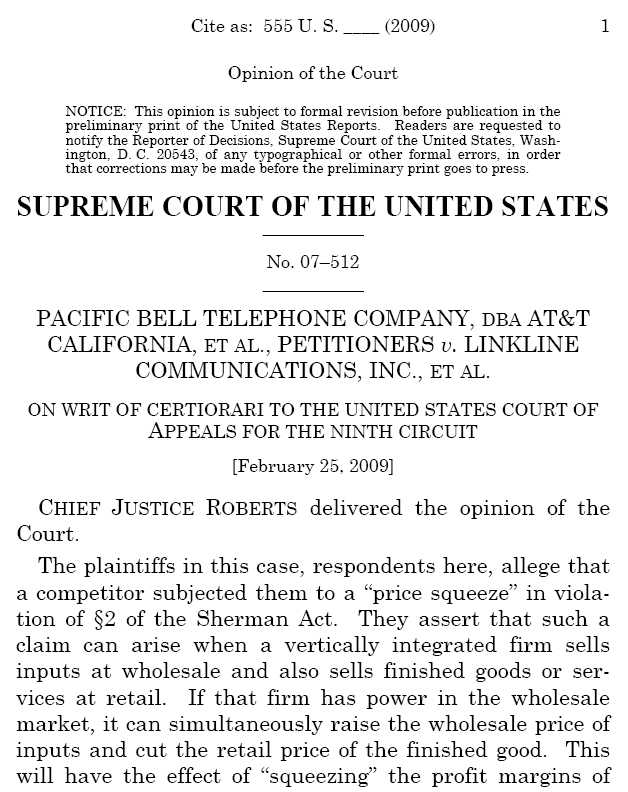U.S. Supreme Court rules for AT&T in antitrust suit


The justices unanimously rejected a claim that AT&T's Pacific Bell Telephone subsidiary had engaged in a "price squeeze" aimed at driving out competition in the market for DSL service.
The case involved wholesale prices AT&T charged for high-speed service to Internet service providers who then compete with AT&T for retail Internet customers.
The plaintiffs in the lawsuit, including LinkLine Communications, buy high-speed service from AT&T, combine it with other services and then sell Internet-access services that compete with AT&T.
The lawsuit, filed in 2003 in federal court in California, claimed a "price squeeze" that involved AT&T selling at high prices in its wholesale sales and low prices at retail to undercut rival retail sellers.
Chief Justice John Roberts disagreed with the plaintiffs and wrote in the ruling that a price-squeeze claim may not be brought under the section of the antitrust law when the defendant has no antitrust duty to deal with the plaintiffs at wholesale.
"[The plaintiffs have] tried to join a wholesale claim that cannot succeed, with a retail claim that cannot succeed, and alchemize them into a new form of antitrust liability never before recognized by this court," Roberts said. "We decline the invitation to recognize such claims. Two wrong claims do not make one that is right."
The Supreme Court reversed a decision by a U.S. appeals court in San Francisco, which said AT&T was setting its wholesale prices so high that the ISPs could not compete with the low prices AT&T charged in the retail market.